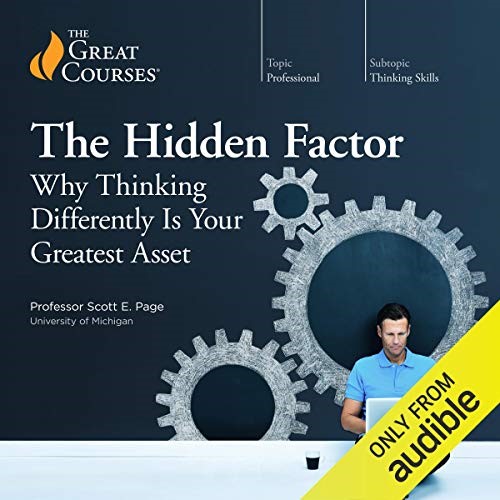Knowledge

Knowledge
Despite the claims of historians, Newton did not discover gravity. While he may possibly have been the first person to survive experimenting with gravity, even that is not a likely scenario since his birth was preceded by thousands of years of human discovery. Knowledge is a funny thing; it takes root in diverse geographic locations and eventually migrates to a point where the person who thinks to write it down gets credit for the discovery.
Imagine if you will, a time in pre-history when caveman Bob and caveman Ted, worn out from a morning of chasing fleet-footed small game about the rugged landscape with their sharpened sticks, are taking a smoke break and leaning back against the side of a cliff while discussing the upside of trapping versus stalking. Suddenly, a boulder snaps loose from the cliff top, either due to seismic activity or cave-teen pranksters, and smashes caveman Ted into the Earth.
Does Bob think, A) “Where the Hell did lazy Ted sneak off to now?”, B) “Those kids are gonna get an ass-whippin when they get back to the cave tonight!”, C) “Surely Ted wouldn’t mind at this point if I took his new sandals.”, or D) “Maybe I should step away from this tall vertical surface and avoid falling objects.”?
I’m thinking that even though caveman Bob did not own a Mont Blanc Pen or a Barrington writing portfolio, when he got back to the cave that night, he mixed up a little berry juice and left some crude, diagrammatic instructions on the cave wall for cavewoman Alice and the unruly cave-teens, to avoid loitering beneath tall vertical edifices during seismic events — and to never ever drop heavy boulders on unsuspecting friends.
I recently completed an enlightening book that covers the history of Physics from Newtonian Physics to Classical Physics to Modern Physics to Quantum Physics. It also documents parallel discoveries in Astronomy. What’s interesting is the way we latch onto various discoveries as “absolute truth” or “laws of nature” until someone else comes along and knocks them off their pedestal.
The author, a highly educated and respected scientist, kept referring to “Laws” of Quantum Physics after having spent most of the book documenting the rise and fall of various scientific theories. It was as if he hadn’t read his own book.
Perhaps most interesting is our intrinsic need for believing we have finally discovered the absolutes. That drives us to base all future knowledge on our accepted theories until some quirky, outside-the-box thinker like Galileo or Einstein dares to question the status quo and upsets the apple cart.
What will our great, great grandchildren discover and accept as absolute that we haven’t even thought about yet? Will they discover those miniscule electrons within atoms are actually communicating with each other? Perhaps that tug-of-war electron in a covalent compound is akin to the minor child of angry ex-spouses sharing joint custody? Does the father nucleus complain to the minor electron about the infidelity of the mother nucleus and how she was seen flirting with a Carbon atom at the neighborhood block party? Does mom nucleus complain to the helpless electron about the self-centered father nucleus who never pays child support?
What about all those card-carrying PETA members who look down their hummus-smeared noses at carnivores for our lack of empathy towards animals? Will Vegans one day be categorized with Hitler and Chairman Mau for inventing massive death machines that wiped out vibrant 100-acre civilizations of conscious, living, interconnected wheat in a single day?
OK, even I concede that I might possibly, sometimes, on the rarest of occasions, overstate things, but you have to admit that our understanding of nature is in its infancy at best. If the Earth is in fact in the range of four billion years old and we’ve only been writing stuff down for the last ten thousand of those years, are we really so arrogant as to believe we’ve learned it all?
And if we can’t understand our own environment after ten thousand years, how do we possibly presume to understand other people we’ve only known in the workplace for a few years? Might there be more history and deeper issues that we’re unaware of? It shouldn’t take an Einstein to question our culture’s status quo.
 Let’s talk. I’d really like to hear what you have to say, and it might even give me something to write about. Email me at guy@lawsoncomm.com.
Let’s talk. I’d really like to hear what you have to say, and it might even give me something to write about. Email me at guy@lawsoncomm.com.
I’ll buy you coffee and we can compare notes. I promise not to steal your ideas without permission.
![]()
When you’re in jail, a good friend will be trying to bail you out. A best friend will be in the cell next to you saying,”Damn, that was fun”.
― Groucho Marx
We need more fun in our lives.
― Guy Lawson

Did someone forward this newsletter to you after reading it themselves? Don’t settle for that!
CLICK HERE
to get a fresh, unused copy of this newsletter sent directly to you every Sunday morning. If you decide it stinks, you can always unsubscribe.
The Hidden Factor
Why Thinking Differently is Your Greatest Asset
— Scott E. Page

So, I crawled my way through “Understanding Complexity”. In fact, I had to read it twice, but then, I spotted this new book by the same author and it’s every bit as fascinating, though I may have to read it twice as well. Page really does have a way of getting his listener’s out of their comfort zones and opening their eyes to new concepts. If you read it and understand it, call me; I’ll buy your lunch so you can explain it to me.
A meeting of great minds who think alike












